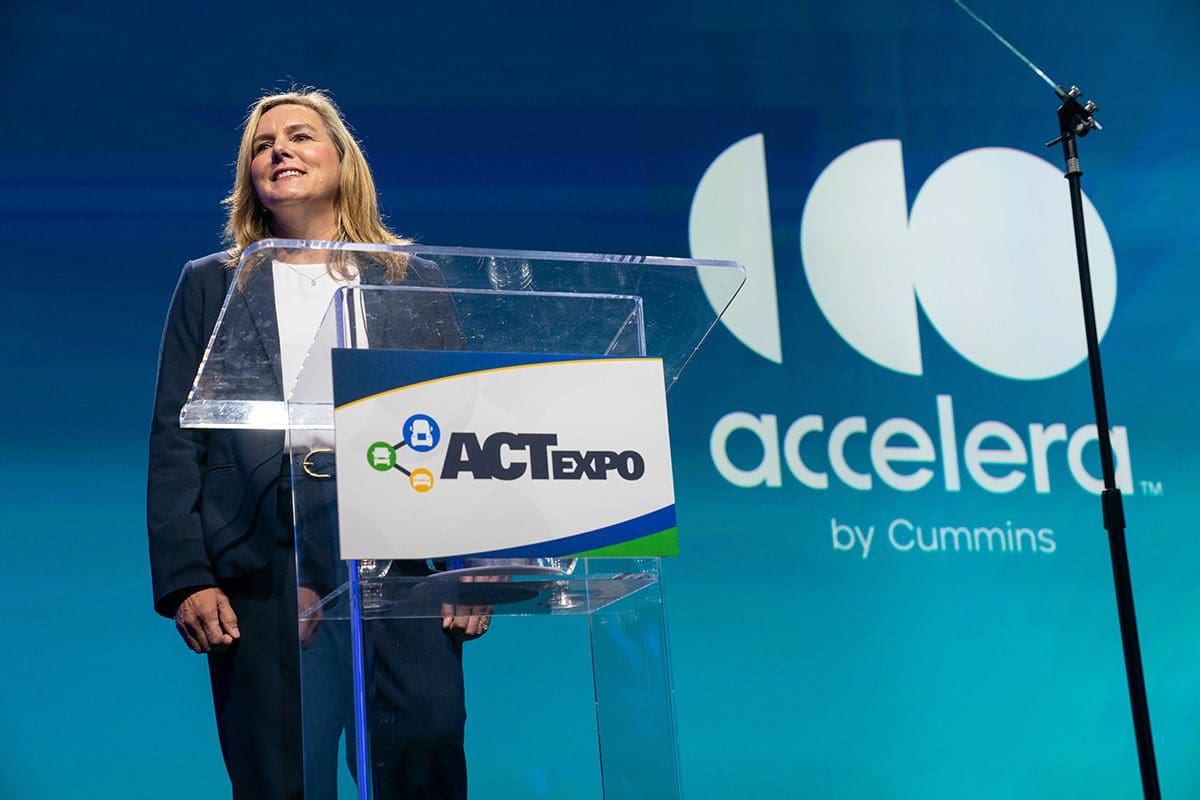
- GNA Insight
Accelera CEO Maps Out Company, Industry Journey Forward
May 4, 2023
Source: ACT News
After breaking attendance records once again, ACT Expo opened day three with a keynote by Amy Davis, CEO of Accelera, Cummins’ new zero-emission technology brand.
“I came to the company because it’s committed to making a difference in our communities, but also in the environment and leading the industry through emissions reductions,” began Davis, who has worked for Cummins for more than two decades.
Cummins began making serious moves into electrification in 2017 when it acquired Brammo, a company that designed and developed battery packs. The company then added a vehicle integrator, another battery company, and a hydrogen company to its portfolio by 2019. In 2022, Cummins completed the acquisition of Meritor and Siemens Commercial Vehicle Systems.
“Coupling these acquisitions with investment in research and development, we’ve spent $1.9 billion, and we now have over 2,000 innovators dedicated to advancing decarbonization with zero-emission solutions,” said Davis. “About two months ago, we took a big step forward in this pursuit by launching Accelera by Cummins.”
The new brand, a combination of accelerate and era, is poised to fast-track the shift towards zero-emission transportation, according to Davis.
“We have a history of proving out technologies specific to heavy-duty trucking and other heavy commercial applications, and we know your applications and duty cycles and all the challenges that they bring,” said Davis, adding that this knowledge, which dates back to more than a century ago, will help the new brand tailor its solutions to meet fleet needs.
Davis then went on to discuss how the technologies that work in light-duty markets will not necessarily work for commercial solutions and vehicles, specifically challenging duty cycles that are also diverse. Accelera is currently pursuing multiple paths forward, not betting on one single technology, while also developing multiple product lines of batteries tailored to meet the demands of specific applications.
“Given the variety of commercial applications, it will take multiple technologies to decarbonize. I bet I’m not the first person to talk about the debate between batteries and fuel cells, and I know I’m not the first person to say we need both. The key factors to determine which technology will be the amount of work or power needed coupled with the distances or overall hours of operation,” said Davis.



